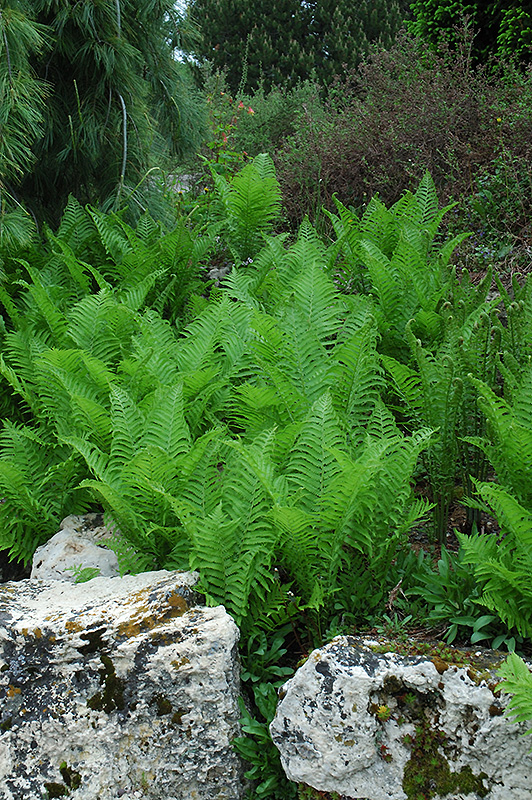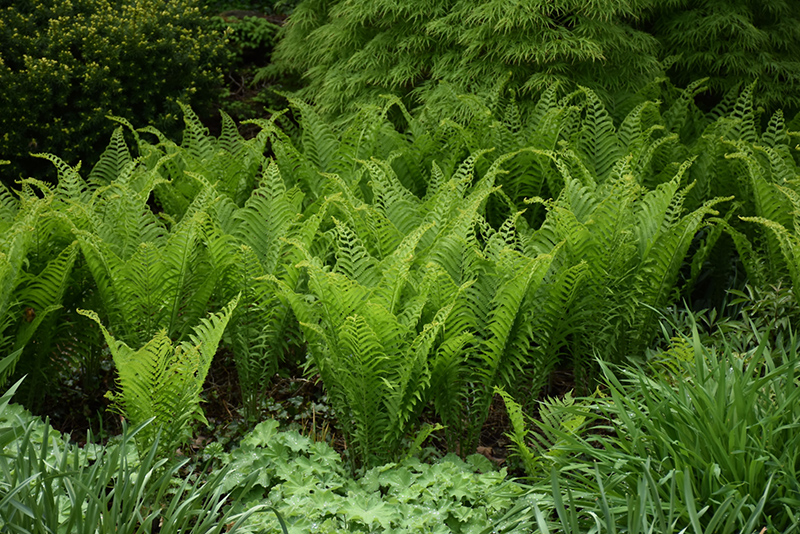Height: 24 inches
Spacing: 3 feet
Sunlight:
![]()
![]()
![]()
Hardiness Zone: 1
Description:
The most common and recognizable of the ferns, this is a very tough and hardy plant, featuring tall lacy fronds all season long; spreads aggressively and may require some control; grows best in shade with rich, moist soil; great for textural effect
Ornamental Features
Ostrich Fern is primarily valued in the garden for its ornamental upright and spreading habit of growth. Its large fragrant ferny compound leaves remain light green in color throughout the season.
Landscape Attributes
Ostrich Fern is an herbaceous fern with an upright spreading habit of growth. Its relatively fine texture sets it apart from other garden plants with less refined foliage.
This is a high maintenance plant that will require regular care and upkeep, and is best cleaned up in early spring before it resumes active growth for the season. Deer don't particularly care for this plant and will usually leave it alone in favor of tastier treats. Gardeners should be aware of the following characteristic(s) that may warrant special consideration;
- Invasive
Ostrich Fern is recommended for the following landscape applications;
- Mass Planting
- General Garden Use
- Groundcover
- Naturalizing And Woodland Gardens
Planting & Growing
Ostrich Fern will grow to be about 24 inches tall at maturity, with a spread of 4 feet. When grown in masses or used as a bedding plant, individual plants should be spaced approximately 3 feet apart. It tends to be leggy, with a typical clearance of 1 foot from the ground, and should be underplanted with lower-growing perennials. It grows at a fast rate, and under ideal conditions can be expected to live for approximately 20 years. As an herbaceous perennial, this plant will usually die back to the crown each winter, and will regrow from the base each spring. Be careful not to disturb the crown in late winter when it may not be readily seen!
This plant performs well in both full sun and full shade. It is an amazingly adaptable plant, tolerating both dry conditions and even some standing water. It may require supplemental watering during periods of drought or extended heat. It is not particular as to soil pH, but grows best in rich soils. It is highly tolerant of urban pollution and will even thrive in inner city environments. This species is native to parts of North America. It can be propagated by division.


